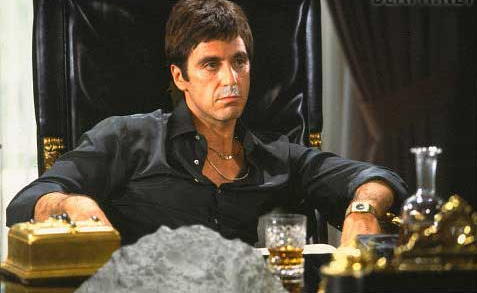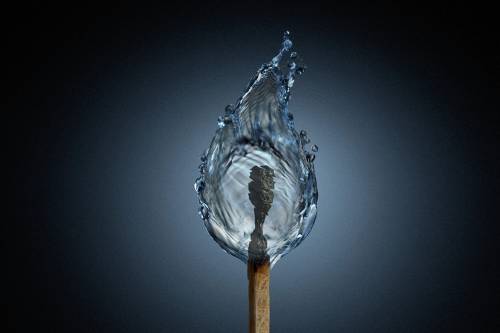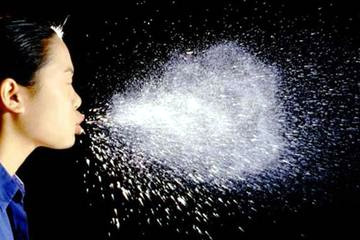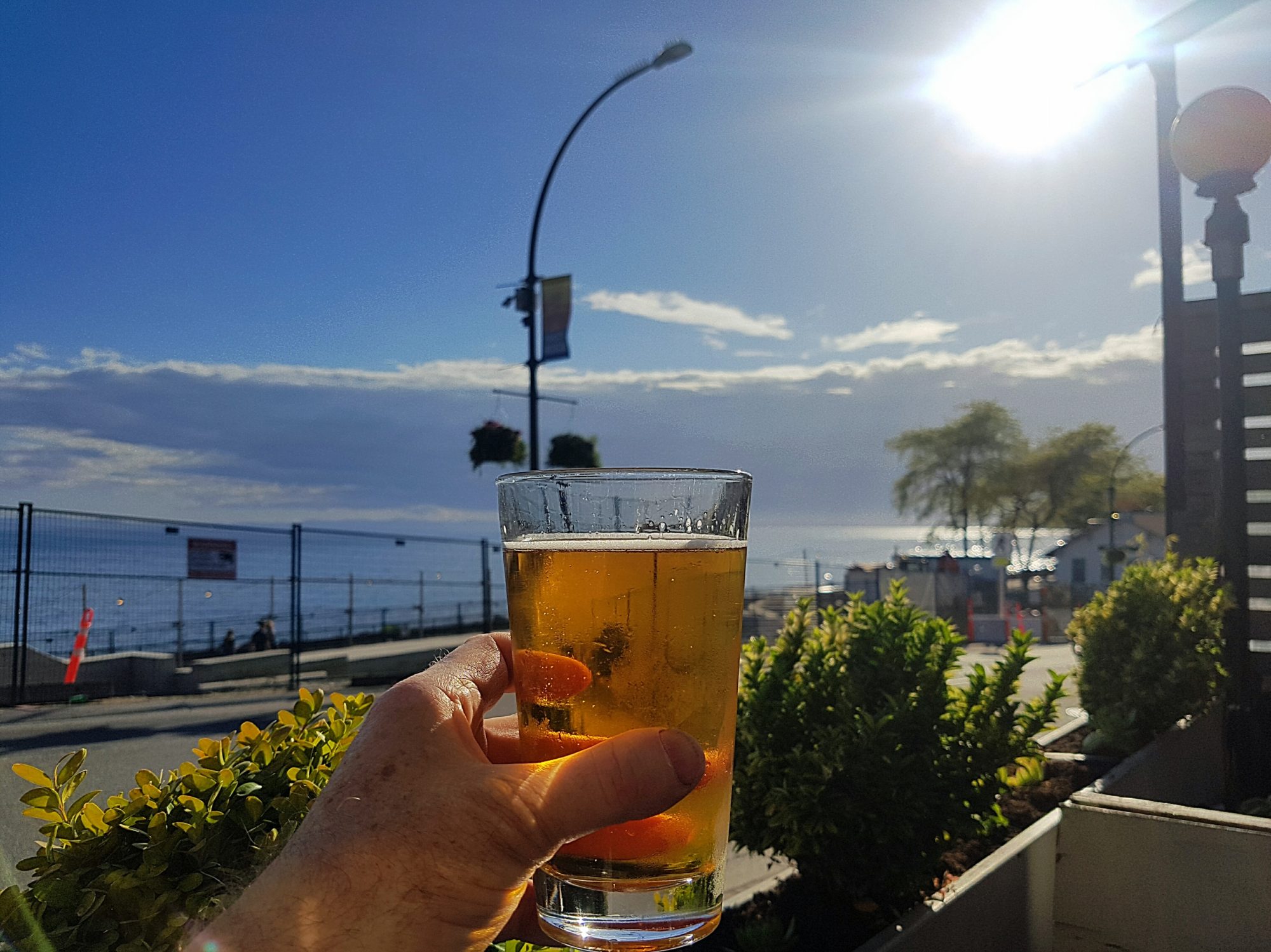
In my previous life as the go-to technical guy for retailers and consumers, I’ve spent a lot of my time giving answers to questions both simple and complex, about beer and wine making. I’ve spent even more of my time trying to counter misconceptions, folk tales, and outright jiggery-pokery about beverage alcohol. Most of the time it’s a case of imperfect understanding or incomplete information that I’ve dealt with, but every once in a while something perfectly ridiculous shows up. You’d think that the sheer dumbness of an idea would make it easier to debunk, but that isn’t the case. Because clickbait/aggregator sites like Huffington Post, Gawker, Buzzfeed and the like keep sensationalising and promoting dumb ideas with witless, boundless and breathless enthusiasm, it only takes a small number of people not reading critically to keep the very dumbest ideas in circulation, spreading them out like a slick of dumb across the media waters.
Case in point, ‘Powdered Alcohol’. An enterprising self-promoter named Mark Phillips set up a website to promote Palcohol. After as much checking as I can manage, I haven’t found a strong indicator that this is a hoax. There’s a credible-seeming document showing label approval for a distilled spirit under the name Palcohol, and the Lehrman beverage law firm is leading on the story, which has, somewhat predictably, made the aforementioned sensationalist sites go absolutely insane with joy, crowing from both sides of their mouths about the joy of smuggling ‘vodka powder’ into stadiums and the danger of ‘snorting powdered alcohol’. All in all, it’s a fabulously rich tapestry to hang fantasies of danger and intrigue on.

Thing is, it’s total crap. Hooey. Malarkey.
Physics prevents alcohol from becoming a powder. Ethanol (CH3-CH2-OH, the good alcohol that we know and love) is a volatile liquid. ‘Volatile’ refers to a substance that vaporises (evaporates) readily, and ethanol evaporates extremely quickly, far faster than water (that’s why rubbing alcohol feels cool on the skin: it evaporates rapidly). At room temperature pure alcohol doesn’t last, and can’t be made into or ‘converted’ to powder. It just goes away.
You can, however, stabilise it by mixing it into an appropriate powder and sealing it in a vapour-proof package. You could use sugar, or more likely a polysaccharide like maltodextrin, which bulks like sugar and has similar hygroscopic qualities, but would not taste abominably sweet in the amount needed.
Now the key to why ‘powdered alcohol’ is a load of bovine feces: the putative TTB label to Palcohol declares 100 ml of powder at 12% ABV, (never mind the mock-up labels on the Palcohol site. They declare much higher levels, but they’re not legal and not approved–fake or simply erroneous, take your pick) and also states that the product is 58% ABW (alcohol by weight). Running the numbers a little, 12% of 100ml = 12ml of 100% pure ethanol. That doesn’t sound like much, but most spirits are sold at 80 Proof, or 40% ABV. Divide 12 ml by 0.40 and you get 30, or roughly one fluid ounce worth of 80 Proof alcohol.
And confirming this bit of math, the packet is marketed as the equivalent to one cocktail. However, the 58% ABW number tells us that the alcohol is much denser than the powder it is suspended in, making the packet fairly bulky–100 ml is almost exactly the same volume as three standard ping-pong balls. This bulk means you’d need 26 of the packets to make up an entire vodka bottle’s worth of cocktails, which is 2.6 litres of powder or 7/10ths of a US gallon.
Assuming you do make this damp maltodextrin substrate-with-alcohol mix, where does that leave you? With a product that’s only 12% ABV, probably costs more, and bulks much larger than simple beverage alcohol, is tough to dissolve in cold liquid and doesn’t taste like anything without the addition of lots of extra additives. Additionally you’d be consuming some form of unidentified powder in vastly higher quantities than the alcohol you’re seeking. Peachy.
So yeah, it might be a thing, but it’s not the thing people want it to be, which is a tiny pinch of magic powder that will turn water into hard liquor like magic.

And in this, I blame Warner Brothers. Specifically, I blame their employee, Wile E Coyote, and the Acme corporation that he supported so strongly. The technology that was displayed in the cartoons was surreal and magical–holes you could drop things into and then roll up and take away, paintings that you could enter or alternatively smash your face against, gravity that only acted long after you stepped off the cliff, and so on, all examples of magical thinking, where the observed could not always be understood and actions and events had absurd causal relationships.

And really, that’s what human beings want: easy answers that make sense on an emotional level–alcohol is bulky, if it were dried out, you could carry lots with little bulk or weight, hurrah! Only no, reality has to intervene with its fancy college learnin’, laws of physics and general fun-spoiling party-pooper attitude.
I’m not immune to the desire for magic answers. When I was a little kid I was promised moon vacations and a jet car. I’m still waiting for those to be practical, but I know they’ll never come my way. It may make me a cynical curmudgeon now, but on the other hand I save space in my brain for things that are physically possible. Powdered alcohol is a pretty strong marketing hook, but snake oil often is.

Oh, and the danger of ‘snorting’ Palcohol (which Phillips’ coquettishly advises against): if you can snort a volume of sugar/maltodextrin the size of three ping-pong balls to get the stinging equivalent of an ounce of booze up your nose, you’re not human, you’re a vacuum cleaner. Plus, ever get alcohol in your sinuses? It doesn’t stay there: your body won’t let it.

I too did some searching around and was astonished that this did not seem to be a hoax. Thank you for confirming my reality… and dashing my hopes of powdered alcohol, calorie free desert puddings, and effort free exercise.
Sorry about that David: crushing people’s hopes and dreams seems to be my specialty. But if you come up with that exercise-free pudding, do let me know.
Tim